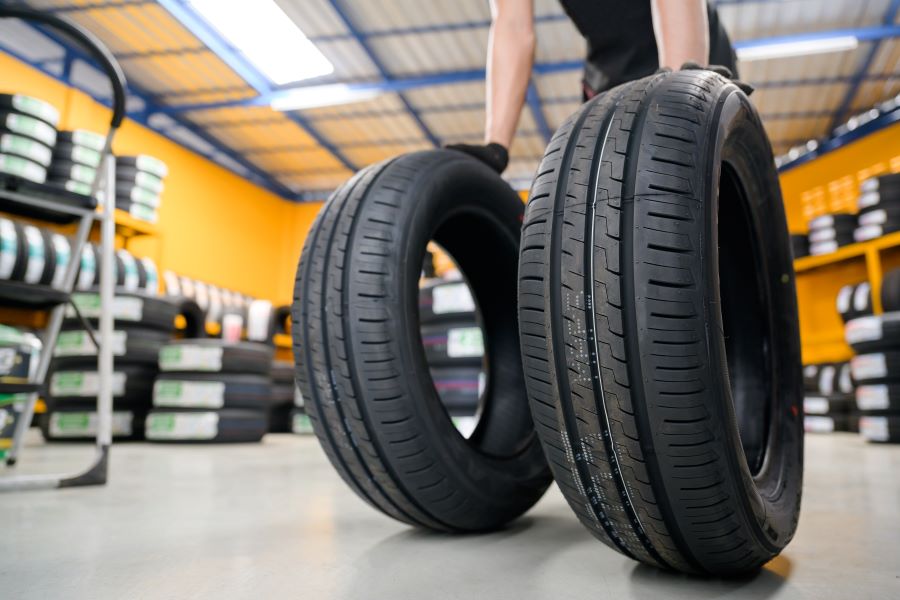Find Tire Deals Near You From Trusted Local Providers
Are you in need of new tires but concerned about the cost... Finding great tire deals in your local area can help you save money while ensuring your vehicle's safety and performance. This article will guide you through the process of locating affordable tire deals from trusted providers near you, helping you make an informed decision for your next tire purchase.

Tires are one of the most important safety components of your vehicle, providing the crucial connection between your car and the road. However, quality tires can represent a significant investment, which is why finding good deals from reputable providers matters. With numerous options available locally and online, understanding how to identify legitimate savings opportunities while ensuring you’re getting quality products is essential for every vehicle owner.
How Can You Tell When It’s Time to Replace Your Tires?
Before shopping for tire deals, it’s important to determine whether you actually need new tires. The most common indicator is tread depth. Use the penny test by inserting a penny into your tire’s tread groove with Lincoln’s head upside down—if you can see all of Lincoln’s head, your tread depth is less than 2/32 inch, meaning it’s time for replacement.
Other warning signs include visible sidewall cracks, bulges, or blisters, which indicate structural weaknesses. Uneven wear patterns might suggest alignment or suspension issues that should be addressed before new tire installation. Excessive vibration while driving or a vehicle that pulls to one side can also signal tire problems.
Age is another important factor—most manufacturers recommend replacing tires every six years regardless of tread depth due to rubber deterioration. Check the four-digit DOT code on your tire’s sidewall, which indicates the week and year of manufacture (e.g., 3618 means the 36th week of 2018).
What Factors Should You Consider When Shopping for Tire Deals?
When evaluating tire deals, price shouldn’t be your only consideration. First, ensure the tires match your vehicle’s specifications for size, load rating, and speed rating—information found in your owner’s manual or driver’s door jamb. Consider your driving habits and local climate conditions. All-season tires offer versatility, while specialized winter or performance tires serve specific needs.
Tire quality and warranty terms vary significantly between brands and models. Premium tires typically offer better traction, handling, and longevity, potentially providing better value despite higher upfront costs. Look for warranties that cover both manufacturing defects and tread life.
Timing your purchase can lead to substantial savings. Many retailers offer promotions during seasonal changes (spring and fall), major holidays, or when new models are released. Some providers also offer price-matching policies or rebate programs that can significantly reduce costs.
How Can You Find Local Tire Discounts?
Local tire discounts can be found through multiple channels. Start by checking dedicated tire retailers like Discount Tire, Tire Rack, or local independent shops, which often run their own promotions. Many of these businesses maintain mailing lists or loyalty programs that provide advance notice of sales events.
Auto repair chains and service centers frequently advertise tire specials, particularly during slower business periods. Even warehouse clubs like Costco and Sam’s Club offer competitive tire pricing for members, often including free rotation and balancing services.
Digital resources have made finding local deals easier than ever. Websites like TireBuyer and SimpleTire allow you to search for tires based on your vehicle specifications and compare prices from various local installers. Many tire manufacturers’ websites feature dealer locators and current promotions. Mobile apps like Tiresize and Tread can help you identify your tire needs and find nearby deals.
What Are Some Unique Ways to Save on Tire Purchases?
Beyond standard sales and promotions, several creative approaches can help reduce your tire expenses. Consider purchasing slightly used tires with significant tread life remaining—some specialty shops offer quality inspected used tires at substantial discounts. Retreaded tires, particularly for trucks and commercial vehicles, can provide significant savings while being environmentally friendly.
Timing your purchase strategically can yield unexpected savings. End-of-quarter sales often feature deeper discounts as retailers work to meet sales targets. Some shops offer discounted installation when purchasing complete sets rather than individual tires.
Manufacturer rebate programs frequently offer mail-in rebates of $50-$100 when purchasing sets of four tires. These promotions typically run seasonally but require submitting proof of purchase within specific timeframes. Credit card rewards programs sometimes feature bonus points or cashback for automotive service purchases, effectively discounting your tire purchase.
Where Can You Find Affordable Tire Deals From Trusted Providers?
Finding the balance between affordability and reliability is key when searching for tire deals. National tire retailers with local branches often combine competitive pricing with standardized installation practices and warranties. These include Discount Tire, Firestone Complete Auto Care, and Goodyear Auto Service centers, which frequently offer installation packages and ongoing maintenance services.
Local independent tire shops may offer more personalized service and competitive pricing to build community relationships. These establishments often have lower overhead costs than national chains and can pass those savings to customers while providing expert advice tailored to local driving conditions.
| Provider Type | Average Price Range (Set of 4) | Typical Included Services |
|---|---|---|
| National Chains (Discount Tire, Firestone) | $400-$800 | Free rotation, balance, warranty |
| Warehouse Clubs (Costco, Sam’s Club) | $450-$750 | Installation, road hazard protection |
| Local Independent Shops | $350-$700 | Personalized service, local expertise |
| Online Retailers (TireBuyer, SimpleTire) | $300-$650 | Shipped to local installer |
| Dealerships | $500-$1,000 | OEM specifications, premium service |
Prices, rates, or cost estimates mentioned in this article are based on the latest available information but may change over time. Independent research is advised before making financial decisions.
Auto dealerships typically charge premium prices but offer manufacturer-specific expertise and original equipment manufacturer (OEM) tires designed specifically for your vehicle. While these options generally cost more, they may provide optimal performance for certain vehicles. Many dealerships run seasonal promotions or service specials that can make their offerings more competitive.
Online retailers like Tire Rack and TireBuyer have revolutionized tire shopping by allowing consumers to compare prices and specifications easily. These platforms often partner with local installation centers, creating a hybrid shopping experience that combines online convenience with local service. Many offer price guarantees and significantly lower prices due to their reduced overhead costs.
Finding the right tire deal requires balancing immediate cost savings against long-term value. The cheapest option isn’t always the most economical when considering factors like tread life, fuel efficiency, and performance characteristics. By researching options through multiple channels and understanding exactly what your vehicle needs, you can secure quality tires at reasonable prices from providers you can trust, ensuring both your safety and financial well-being.




